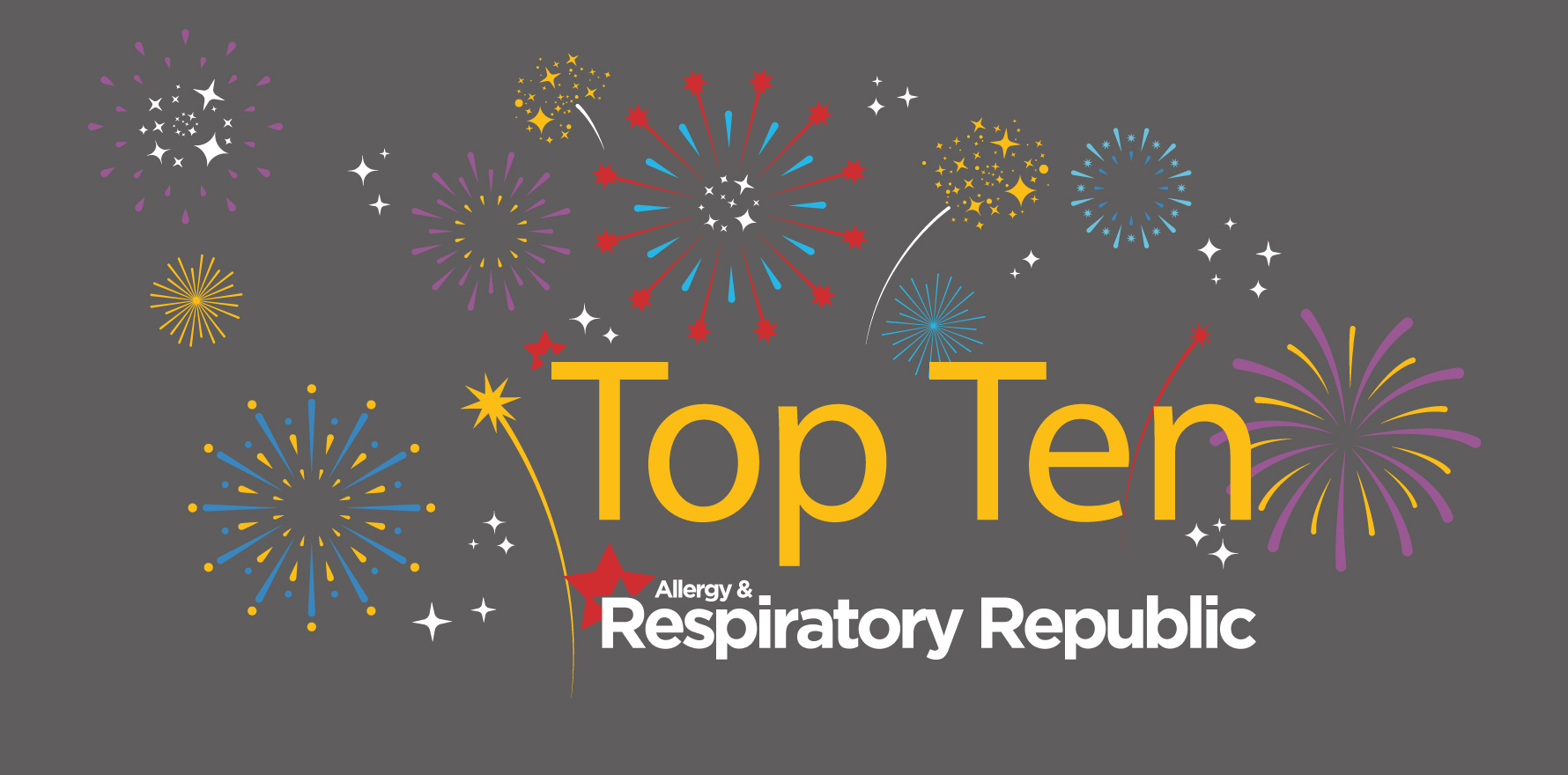From practical clinical features to warnings and TGA decisions, 2024 had it all.
As 2024 comes to a close, it’s time to reflect on the Allergy & Respiratory Republic stories from the year that our readers loved the most.
Practical clinical features were a hit, along with news about new drugs research, and a tribute to a much-loved colleague.
See the top 10 most read Allergy & Respiratory Republic stories for 2024 below:
- Australia in world top 10 for cleanest air: Australia is the ninth cleanest country in the world when it comes to air quality, a new international report has revealed. And Canberra was also singled out in the annual report, topping the list for the best regional city in the world for air quality.
- PBAC rejects RSV pregnancy vaccine: The PBAC has rejected Pfizer’s application for its RSV vaccine, Abrysvo, to be added to the National Immunisation Program for pregnant women to prevent severe disease in their babies. In March, the TGA approved Abrysvo for pregnant women at 24 to 36 weeks’ gestation to prevent RSV-related lower respiratory tract disease in their infants for up to six months. The vaccine was also approved for adults aged 60 and over. Just a few months later, federal health minister Mark Butler announced expectant mothers would be able to access Abrysvo via the National Immunisation Program before next winter. Newborn babies up to 24 months of age whose mothers have not received the vaccine will also be eligible for free course of Sanofi monoclonal antibody immunisation Beyfortus (nirsevimab) through a hybrid funding arrangement.
- Can a new JAK inhibitor help urticaria?: Early research on a TYK2/JAK1 inhibitor called TLL-018 has provided promising results for treatment of moderate-to-severe chronic spontaneous urticaria (CSU).
- Drug doubles the odds of quitting vapes: A drug used for decades as a herbal tobacco smoking cessation tool may also help patients quit e-cigarettes, research suggests. The US study participants who took cytisinicline were twice as likely to abstain from using e-cigarettes for four weeks, the researchers found.
- Needle-free adrenaline wins FDA green light: he US Food and Drug Administration has approved the first ever epinephrine nasal spray for the treatment of anaphylaxis. The news came as CSL Seqirus told Allergy & Respiratory Republic it was preparing a submission to the TGA seeking approval to bring the drug known as neffy to Australia.
- Needle-free adrenaline edges ever closer: This was a popular topic for readers this year. This article detailed several studies presented at the American Academy of Allergy, Asthma and Immunology (AAAAI) 2024 annual meeting presented by companies that manufacture non-injectable modes of administration have confirmed the pharmacokinetic and pharmacodynamic equivalence of nasal epinephrine sprays with standard of care autoinjector pens in healthy adults and in children.
- Vale Professor Euan Tovey: Allergy & Respiratory Republic was sad to learn of the passing of Associate Professor Euan Tovey, a world-leading researcher in allergy and respiratory medicine long associated with the Woolcock Institute. Professor Tovey died at the end of June at his home in Petersham, Sydney, about a year after his diagnosis with pancreatic cancer, aged 75 years. His colleague and longtime friend Professor Guy Marks told ARR that “I feel like we lost 20 years of good life”, since Professor Tovey had been so healthy and engaged until, and even during, his illness. “I saw him two days before he died, and we were still talking about work, ideas and his concerns about a particular project,” Professor Marks said. “He was in full flight.”
- TGA approves first non-hormonal treatment for hot flushes: The TGA has approved Australia’s first non-hormonal treatment for moderate to severe menopausal hot flushes. The approval was welcomed by University of Sydney Obstetrics and Gynaecology Professor Rodney Baber, who is also a past president of the International Menopause Society.
- Advancing the management of Cow’s Milk Protein Allergy: A review of the most recent evidence demonstrating the clinical benefits of infant formula containing human milk oligosaccharides (HMOs).
- PBAC drops OCS requirement in asthma: The Pharmaceutical Benefits Advisory Committee has removed the need for patients with uncontrolled severe asthma to be required to have trialed oral corticosteroids before being eligible for a biologic prescription on the PBS. The change means the PBS authority requirements for benralizumab, dupilumab, mepolizumab and omalizumab now carry a new definition of “optimised asthma therapy”, which still requires adherence to maximal inhaled therapy (including high dose ICS plus LABA therapy) for at least a year, unless it is contraindicated, or the patient is unable to tolerate it.
We wish all our readers happy and safe holidays, and we look forward to your company in 2025. As always feel free to reach out with any ideas for stories or comments to amanda@medicalrepublic.com.au


